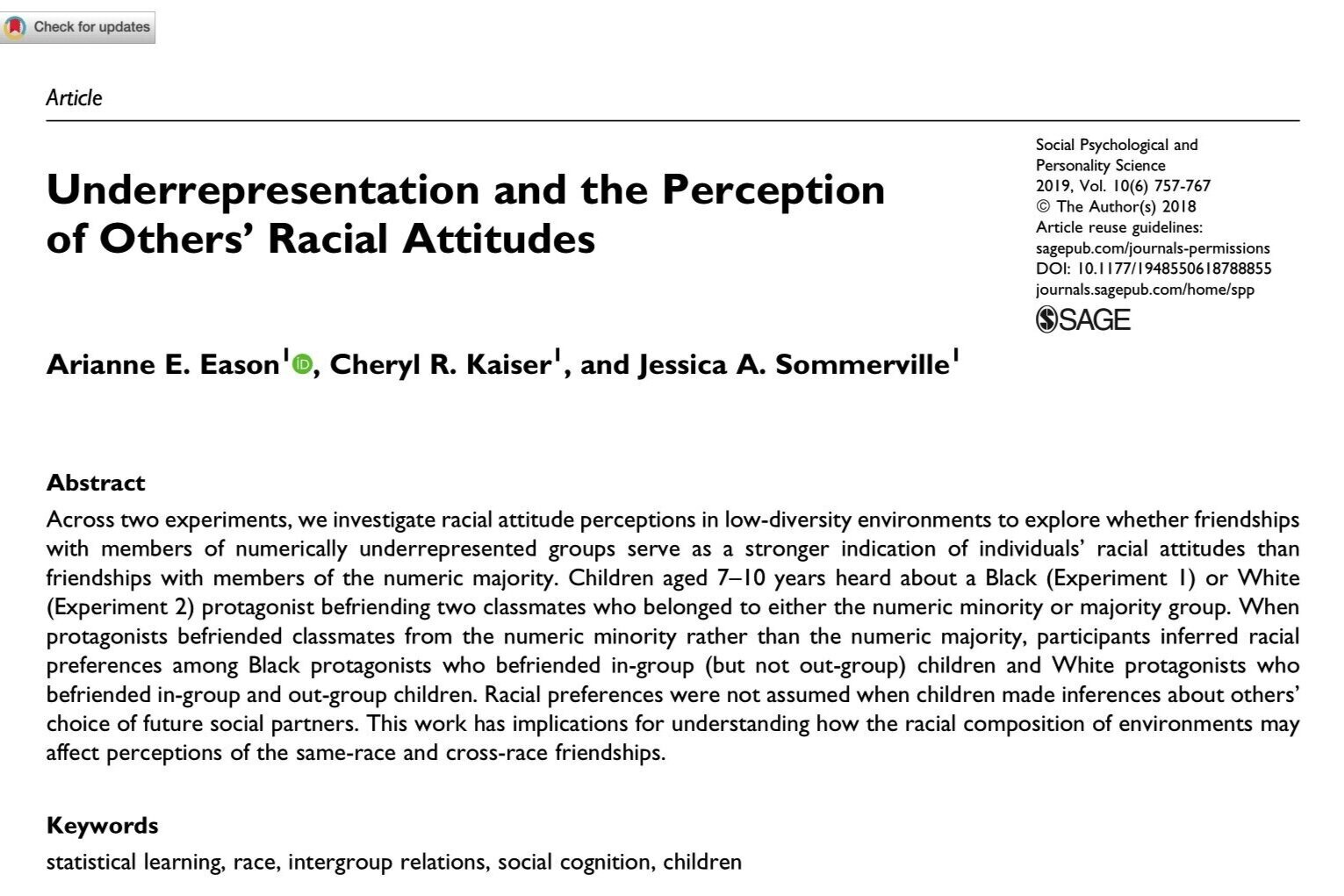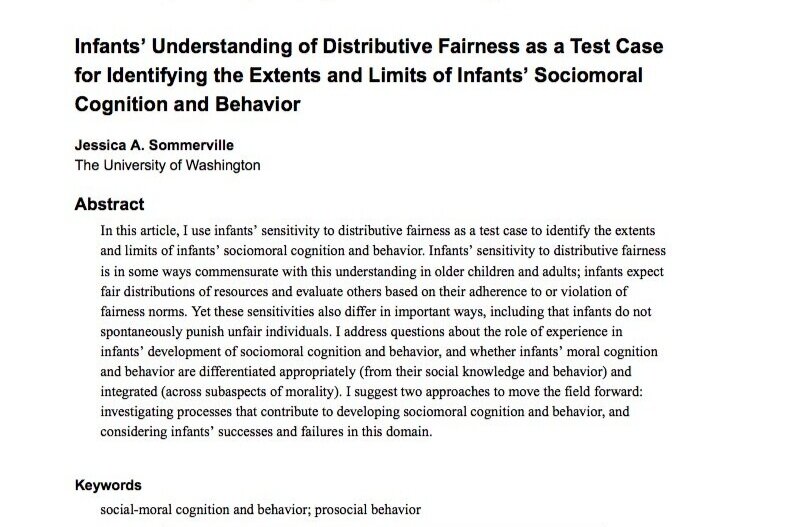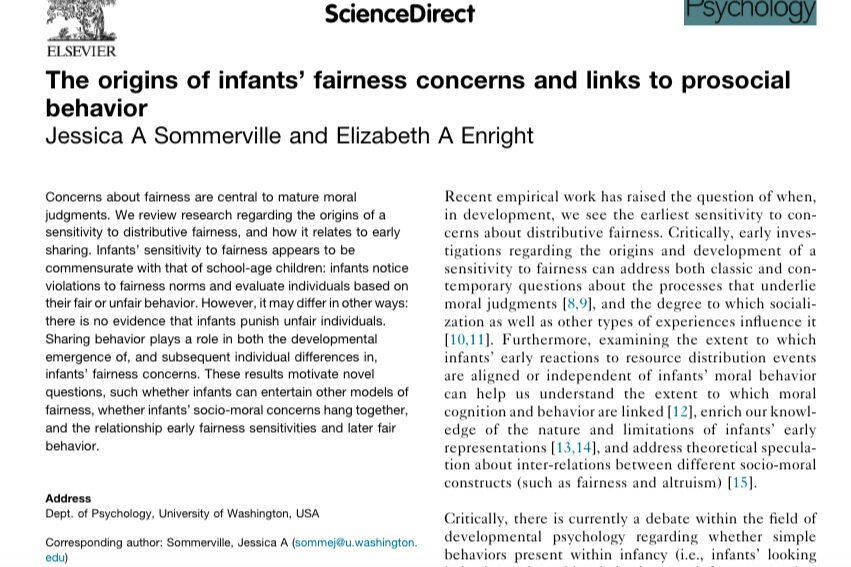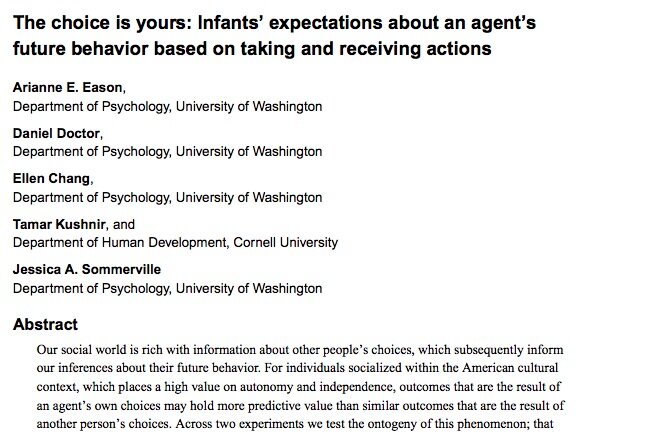Featured Articles
The Little Engine that Can: Infants’ Persistence Matters
Persevering through hardships is linked to many positive outcomes in various areas of life, yet not much is known about the development of persistence in infants and young children. Researchers at the Early Childhood Cognition Lab (now the Toronto Early Cognition Lab) took a deeper look at the existing research on the early development of persistence and found that studying infants’ persistence can tell us a great deal about a child’s development.
Do infants expect fairness in distribution?
As adults, we may be concerned about income inequality, or an unequal distribution of wealth. Often, the distribution of wealth can appear to be unfair. But from what age can infants begin to understand fairness of distribution?
Infants make social decisions based on Fairness
Cost-benefit analyses are central to mature decision-making and behavior across a range of contexts. Given debates regarding the nature of infants’ prosociality, we investigated whether 18-month-old infants’ (N = 160) prosocial behavior is impacted by anticipated costs and benefits. Infants participated in a helping task in which they could carry either a heavy or light block across a room to help an experimenter.
Infants’ weigh the costs and benefits of helping others
We make decisions every day by weighing the costs and benefits of our actions, which ultimately guides our behaviour across a range of contexts. For example, when deciding if you should do your dishes, you weigh the cost of your time and effort with the benefit of having clean dishes and a tidy kitchen. We investigated whether infants at 18 months use similar cost-benefit analysis when they’re deciding whether to help others. It turns out, infants are more likely to help others when they need to put in less effort to do so.
Recent Articles
For a comprehensive list of Dr. Sommerville’s publications, click here.














